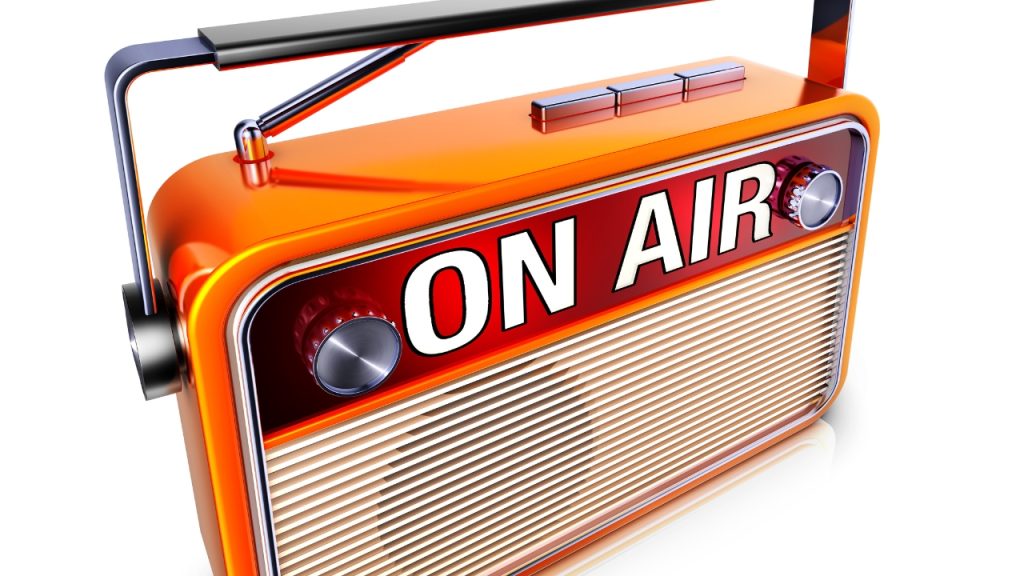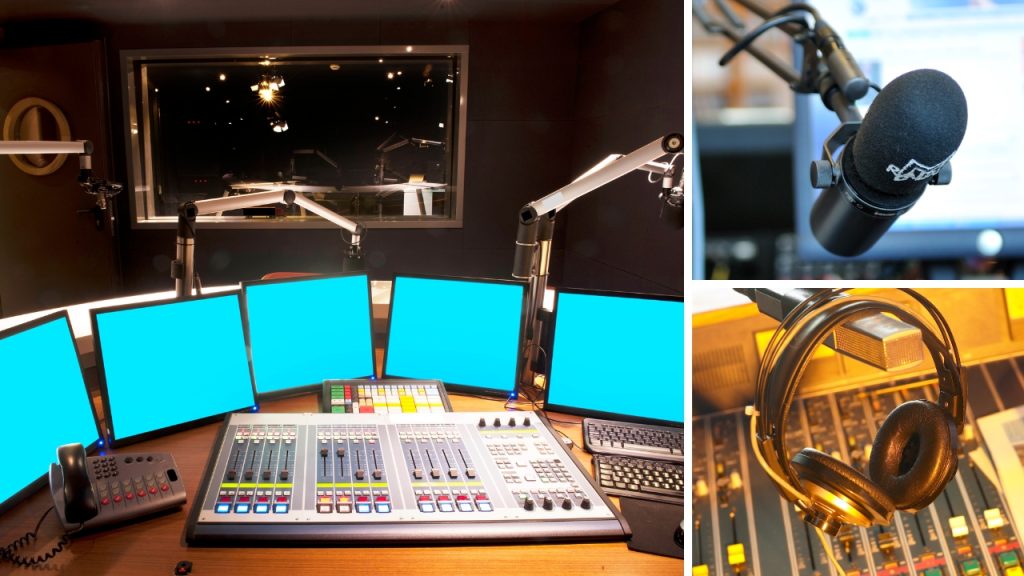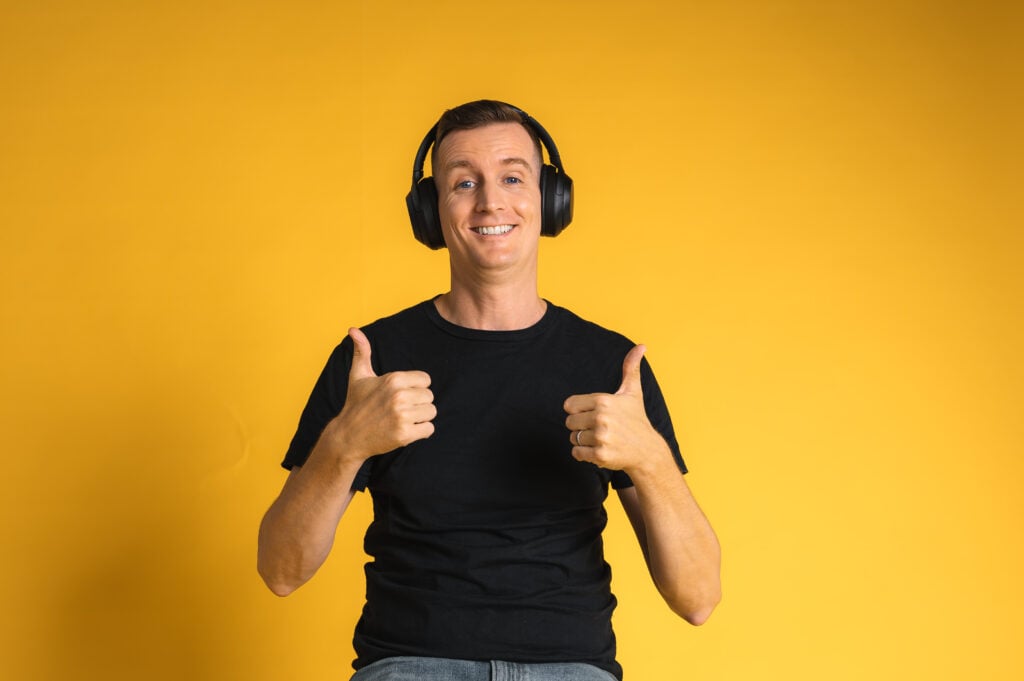When it comes to audio content, podcast and radio are the top 2 platforms that have the power to engage listeners and offer valuable content. If you don’t know which one to choose, let me help you.
My name is Niall Mackay, founder of Seven Million Bikes Podcasts. I started podcasting in 2019 as a hobby, but now it has grown into my full-time business. With the mission of creating impactful stories to inspire the world, I help others create and edit their shows.
Besides podcasts, radio is also a king platform for sharing voices and stories. Each platform has its own strengths, making the choice between them highly dependent on your goals and audience preferences.
Whether you’re a creator or a listener, I will help you compare and highlight their pros and cons. Let’s see their similarities and differences so that you can easily choose which one is right for you.
Table of Contents
Podcast and Radio: Same Features
Focus on Audio Storytelling
At their core, podcast and radio revolve around the art of storytelling through sound. Whether it’s a gripping true-crime podcast or a live radio drama, both platforms excel at drawing listeners in with compelling narratives. For example, NPR’s This American Life is a fantastic case where the storytelling style blurs the lines between traditional radio and podcasting, showcasing how both formats can deliver powerful stories.

Accessibility for Listeners
Both podcast and radio are easily accessible to audiences. You don’t need a lot of fancy equipment to tune in—just a smartphone for podcasts or a radio receiver for traditional broadcasts. Today, internet radio bridges this gap further, allowing live radio to stream online just like podcasts.
This accessibility has helped both mediums attract large and loyal audiences across all demographics.
Portable and Convenient
One of the biggest advantages of both podcast and radio is that they can be enjoyed on the go. Whether you’re driving to work, cooking dinner, or working out, podcasts and radio shows provide entertainment and information without requiring your full attention.
For example, commuters often switch on their favorite FM station for traffic updates and music, while podcast fans might queue up an episode of The Daily for news on their way to work.
Podcast and Radio: Key Differences
While podcast and radio share some similarities, their differences are what truly set them apart. From how they’re consumed to the audiences they attract, these distinctions can help you decide which platform aligns better with your goals or preferences. Let’s break down the key differences and explore who each format is most suitable for.
1. Live vs. Pre-Recorded
The most notable difference is that radio is typically broadcast live, while podcasts are pre-recorded. Radio hosts need to think on their feet, handling everything from live calls to technical glitches in real-time.
Podcasts, on the other hand, are pre-recorded. Creators have the freedom to record episodes in advance, edit out mistakes, and refine their content. This flexibility means podcasters can perfect their delivery, add sound effects, and ensure smooth transitions between segments.
- Radio: If you thrive under pressure, enjoy live interactions, and love the energy of real-time broadcasting, radio might be your calling.
- Podcast: If you prefer to take your time crafting content, and ensuring everything is perfect before release, podcasting is a better fit.

2. Scheduling vs. On-Demand
Radio operates on a fixed schedule. Shows air at specific times, and listeners need to tune in during those hours to catch the broadcast. This structured format is great for creating a sense of routine, but it limits when and how people can engage with the content.
Podcasts, however, offer on-demand access. Listeners can tune in anytime, pausing and resuming episodes at their convenience. This accessibility makes podcasts more appealing to busy audiences who can’t commit to a set schedule.
- Radio: Ideal for those who can commit to a fixed schedule and build a routine for their audience.
- Podcast: Perfect for audiences who value flexibility and creators who don’t want to be tied to a rigid schedule.
3. Audience Reach: Mass Appeal vs. Niche
Traditional radio is designed to appeal to a broad audience. Popular radio stations often cover a wide range of topics, from news and traffic updates to music and sports, to attract the largest number of listeners.
Podcasts target specific interests, allowing creators to explore topics in greater detail, such as Vegan cooking, historical events, beers, or event accounting.
- Radio: Best for creators looking to reach a wide audience and discuss general topics.
- Podcast: Ideal for creators passionate about specific topics and seeking a more engaged, loyal listener base.
4. Lifespan of Content
Radio broadcasts are ephemeral—they’re live, and once aired, they’re gone unless recorded for later use. Even if a station archives its shows, the nature of live broadcasting means content is often tied to a specific moment in time.
Podcasts, however, have a long lifespan. Episodes remain accessible indefinitely, allowing listeners to discover and enjoy content months or even years after it’s published. This permanence also means creators can build a library of episodes, gradually expanding their audience. Therefore, having a podcast is more beneficial for building evergreen or lifelong content.
- Radio: Ideal for creators producing time-sensitive content, such as live news or sports commentary.
- Podcast: Perfect for creators who want their content to remain accessible and relevant over the long term.
5. Equipment and Cost
Both podcast and radio require similar basic equipment, like microphones and audio editing software. However, live radio typically demands more advanced tools, such as transmitters, antennas, and mixing boards, which can be costly. Besides, we need to invest in a radio station or a studio for hosting a radio show.

Starting a podcast is generally more affordable and requires only basic gear to begin. If you’re considering starting a podcast and don’t know what to buy, I recommend the Podcast Starter Kit, or podcast microphones for any budget. These will give you a glance at what to prepare for starting a podcast. Moreover, if you want to test the water to see if you’re suitable for podcasting, simply learn how to start a podcast on iPhone.

Example:
A local radio station might need a studio with expensive equipment to broadcast live, while a podcaster can start with a quality microphone and editing software on their laptop.
Who is it for?
- Radio: Ideal for those with access to professional studios or the resources to invest in high-end equipment.
- Podcast: Perfect for individuals or small teams with limited budgets who want to create from home.
6. Regulation and Licensing
Radio broadcasting is highly regulated, especially when it comes to music. Stations must obtain licenses and adhere to rules about how frequently they can play songs by the same artist or album.
Podcasts face fewer restrictions but can’t freely use copyrighted music without permission. While podcasters can avoid music licensing altogether by not using it (and they shouldn’t unless they have the necessary permission!), they need to be cautious about copyright laws when including any external content.
Example:
A radio station might have a license to play a popular song every few hours, while a podcast can only use royalty-free or public-domain music unless it secures explicit permissions.
Who is it for?
- Radio: Best for creators prepared to navigate strict regulations.
- Podcast: Great for those looking for more creative freedom and fewer legal hurdles.
Which One Is Right for You?
Whether you choose podcast or radio, each format offers unique opportunities to share your voice, connect with audiences, and create compelling audio content. Consider your strengths, resources, and goals to decide which platform aligns best with your vision.
For Listeners
You should choose Radio if:
- You enjoy live, real-time experiences: Radio’s spontaneity keeps things fresh and unpredictable. Whether it’s a breaking news update, live sports commentary, or a caller sharing a funny story, the immediacy of radio offers a unique connection to the moment.
- You want a mix of music and talk: Many radio stations offer a balance of music, news, and chat segments, making it easy to switch between entertainment and information.
- You have a fixed listening routine: If you prefer tuning in at specific times to catch your favorite show or DJ, radio aligns perfectly with your schedule and provides a sense of structure.
You should choose Podcasts if:
- You prefer flexibility: Podcasts let you listen on your schedule. Whether you’re cooking dinner, exercising, or commuting, you can pause and resume anytime.
- You want niche content: Podcasts cater to specialized interests, from obscure hobbies to deep dives into history or personal development. If you’re passionate about a specific topic, chances are there’s a podcast for you.
- You value uninterrupted listening: With podcasts, there are fewer ad breaks, and you don’t risk tuning in midway through a conversation, as episodes are designed to be enjoyed from start to finish.
For Creators
Choose Radio:
- Budget Considerations: Starting and maintaining a radio show involves some upfront and recurring expenses. From equipment, broadcasting software, to station costs, you should prepare for these expenses.
- Planning for Unexpected Issues: Mistakes, interruptions, or unexpected events can happen. The ability to stay calm, improvise, and carry on smoothly is vital for live broadcasts.
- Time Management: For live radio, every second counts. Radio broadcasting is time-sensitive, and excellent time management ensures that everything runs smoothly
- You’re focused on a broad audience: Radio’s mass appeal is great for general topics that can capture a wide demographic.
Choose Podcast:
- You prefer control over production: With podcasts, you can edit, refine, and polish your content before releasing it. Mistakes or interruptions can be removed, ensuring a high-quality final product.
- You value long-term impact: Podcast episodes remain accessible indefinitely, letting you build an archive for listeners to discover at any time.
- You’re starting on a budget: Podcasting is more affordable than radio broadcasting. You can start with minimal equipment and scale up as your audience grows.
- Editing and Post-Production: You need expertise or experience in editing audio/video as podcasts require polished audio.
If you aren’t confident in your editing ability, why don’t you try hiring an outsource agency? I can help you with this, from consultation, editing to other podcasting services.
Conclusion
When it comes to choosing between podcast and radio, the right platform depends on your preferences as a listener or your goals as a creator. Radio offers live, dynamic content with a sense of community, while podcasts provide the flexibility and depth that modern audiences love.
If you’re a content creator and want to try new platforms with little experience, I recommend you start a podcast first. It won’t require you much time, resources, and skills. Don’t hesitate to make your dream come true, and remember that I’ll always be here to help.


